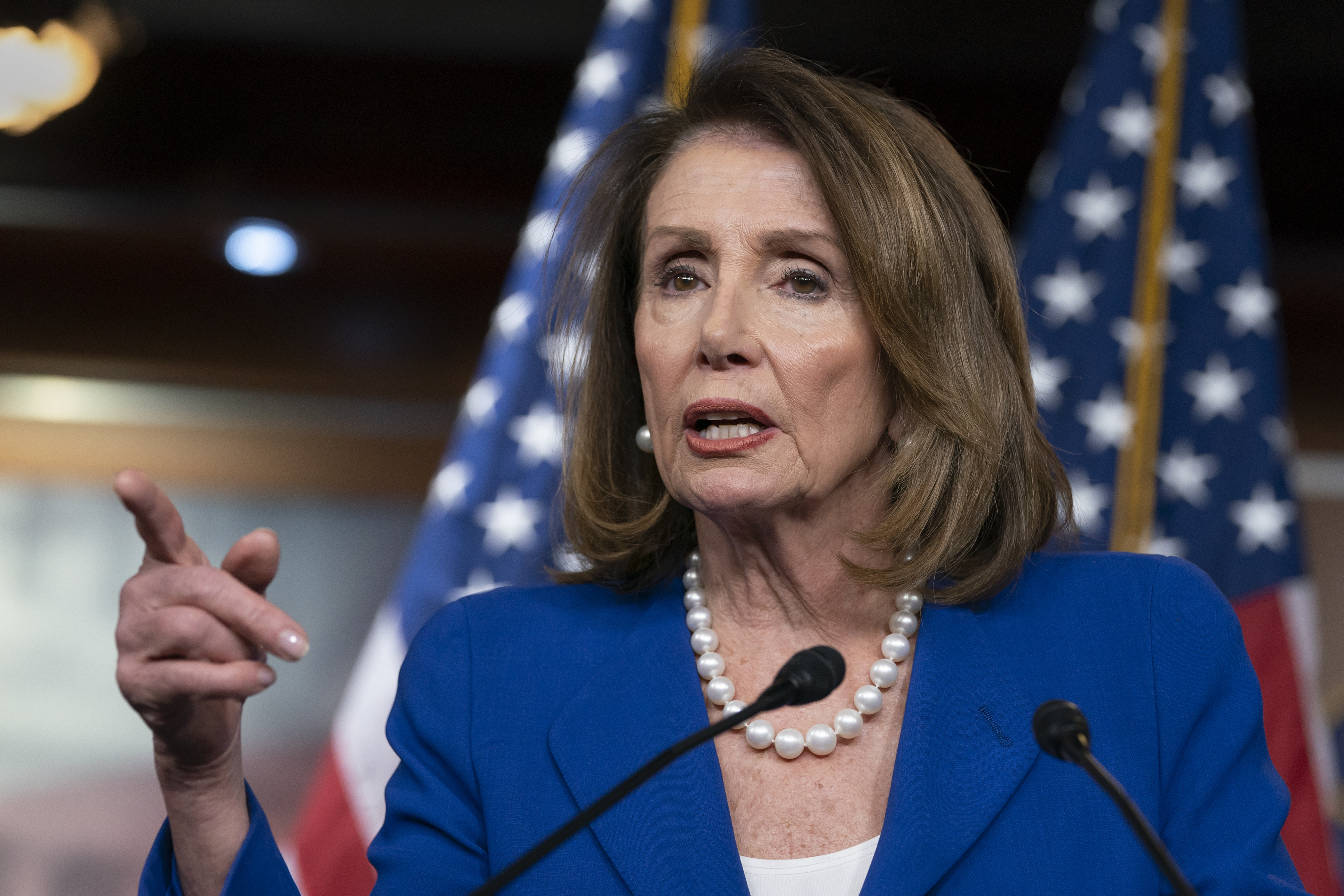Nancy Pelosi Buries Historic Labor Bill to Appease Centrists
The Protecting the Right to Organize Act would eliminate right-to-work laws. House Speaker Nancy Pelosi at a news conference in March. (J. Scott Applewhite / AP)
House Speaker Nancy Pelosi at a news conference in March. (J. Scott Applewhite / AP)
For the first time in decades, the House of Representatives has a rare chance to rewrite American labor laws, in ways that would actually help workers. Among other benefits, a new bill would abolish right-to-work laws that cripple union organizing, create penalties for employers that punish workers for organizing, and set out rules to eliminate delays in negotiating union contracts.
The bill, the Protecting the Right to Organize Act (PRO), was introduced by Rep. Bobby Scott, D-Va., and has 215 co-sponsors. It passed the House Committee on Education and Labor in late September. Rep. Pramila Jayapal, D-Wash., told the Intercept that “it is taking longer than it should” to pass PRO, “given the number of co-sponsors that we have. Many other bills have come to the floor with fewer co-sponsors than this one.”
So why hasn’t Nancy Pelosi brought it to the floor for a vote? And why is she instead focusing on a trade bill that’s a high priority for Donald Trump?
The U.S.-Mexico-Canada Agreement (USMCA) is a replacement for the North American Free Trade Agreement, which removed tariffs and other restrictions on trade among the three countries, but also caused significant job losses and led companies to move their operations overseas.
Pelosi, Cohen suggests, may be focusing on USMCA instead of PRO because she’s following the demands of centrist Democrats eager to prove that they can work with the president. Those moderates believe that passing USMCA would help protect House Democrats who flipped Republican seats in 2018. It’s an argument also advanced by Cheri Bustos, D-Ill., chair of the Democratic Congressional Campaign Committee.
Last week, The Washington Post reported that Jesús Seade, Mexico’s undersecretary for North America, said the agreement had a good chance of being finalized this week. That’s also what Pelosi wants, although Democrats, the Post reports, want “changes that would ensure enforcement of the agreement in a way that would help American workers and prevent further outsourcing of U.S. jobs overseas.”
It’s unclear whether any of those changes would satisfy unions, whose support Democrats still depend on. Richard Trumka, the head of the AFL-CIO, has pushed the Democrats to hold out for more labor protections. According to the Post, “his endorsement would be likely to sway dozens of House Democrats to support the new deal.”
According to an earlier Intercept article by Ryan Grim, Rep. Richard Neal, D-Mass., chair of the Ways and Means Committee, agrees with Bustos, but goes a step further, advocating what Grim calls “a divide and conquer strategy,” adding pension reform to the USMCA deal, a decision that could split union support, and, as Grim puts it, “allow House leaders to say that labor is divided on the question, so the party might as well vote yes [on USMCA].”
Cohen’s own reporting suggests that union support for the NAFTA replacement is far from guaranteed. She writes: “Unions have made clear … that from their perspective, USMCA lacks real labor enforcement mechanisms, which could undermine the whole deal, further drag down wages, and eliminate more jobs.”
Dan Mauer, director of government affairs for the Communications Workers of America, which supports PRO, told the Intercept that “We get it’s hard, there’s a lot of stuff on people’s plates, and at the same time, this bill already has a lot of demonstrated support.” CWA members, Maurer said, would be “very unhappy” if the House failed to make progress on the bill.
Aside from the ample number of co-sponsors, the bill has growing public support for unions. Organizations like nonprofits and digital media companies are beginning to form unions. According to a Gallup poll released just before Labor Day, 64% of Americans support organized labor, a near fifty year high.
Pelosi’s office did not return The Intercept’s request for comment.
Your support matters…Independent journalism is under threat and overshadowed by heavily funded mainstream media.
You can help level the playing field. Become a member.
Your tax-deductible contribution keeps us digging beneath the headlines to give you thought-provoking, investigative reporting and analysis that unearths what's really happening- without compromise.
Give today to support our courageous, independent journalists.





You need to be a supporter to comment.
There are currently no responses to this article.
Be the first to respond.